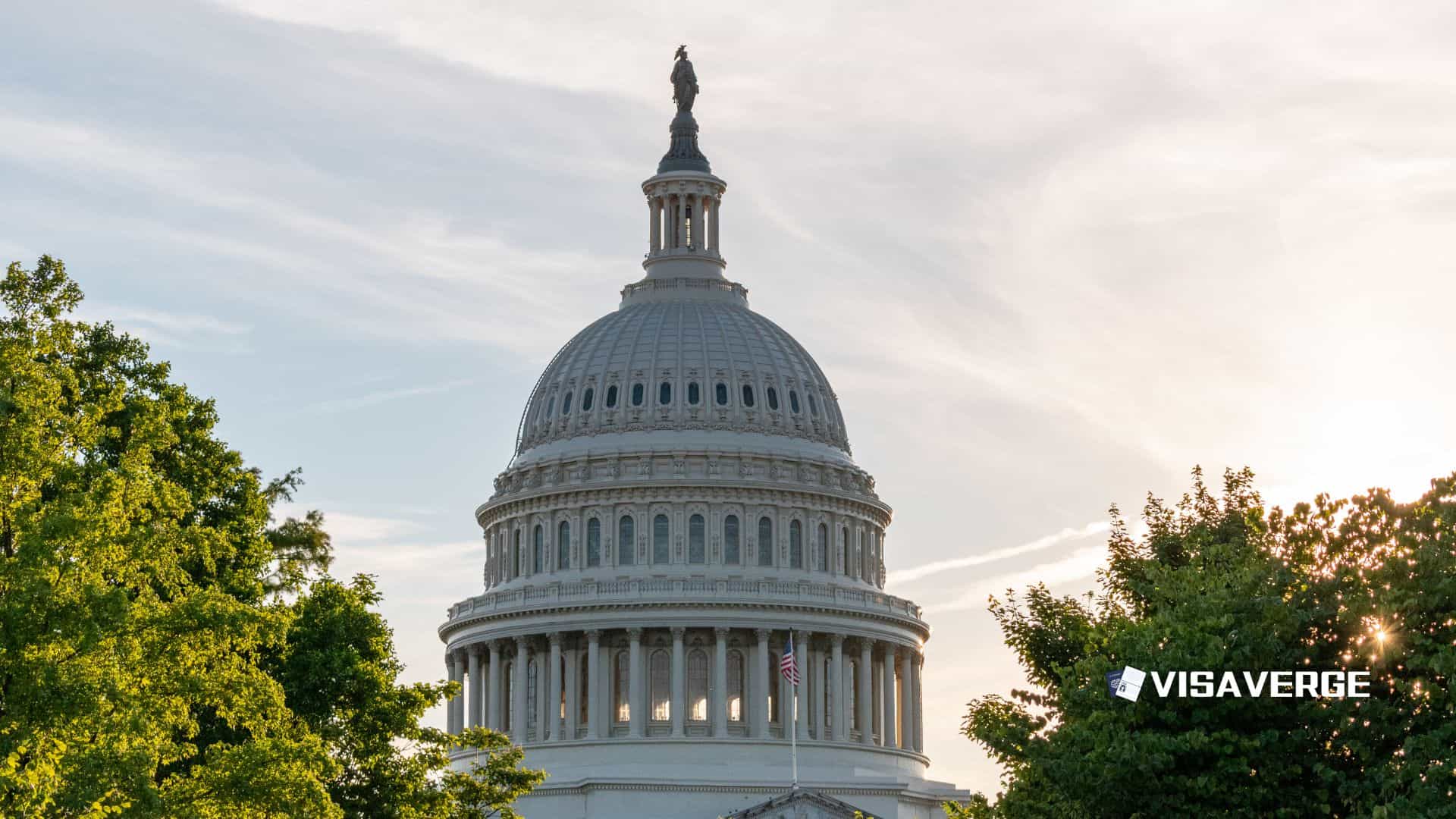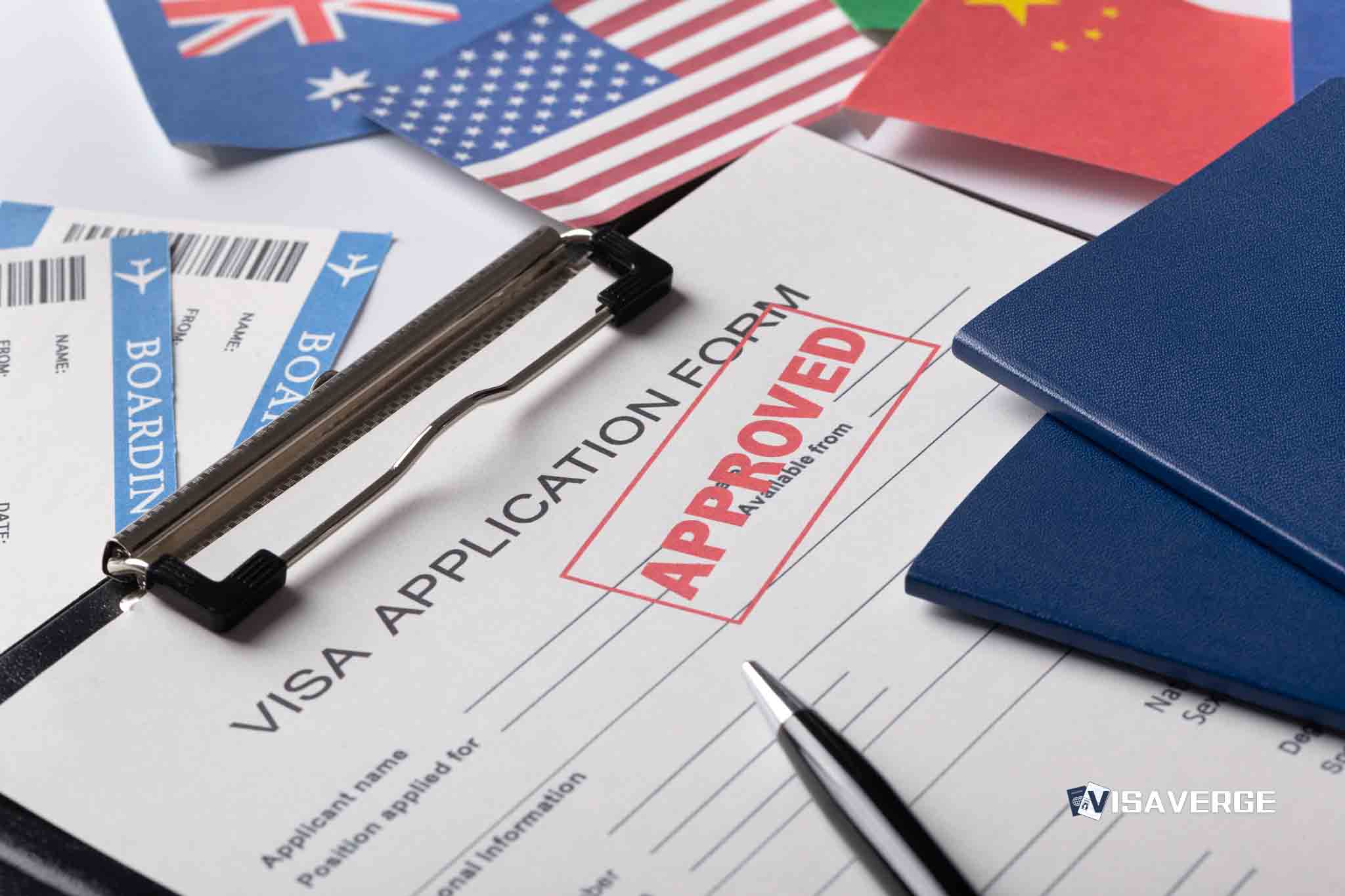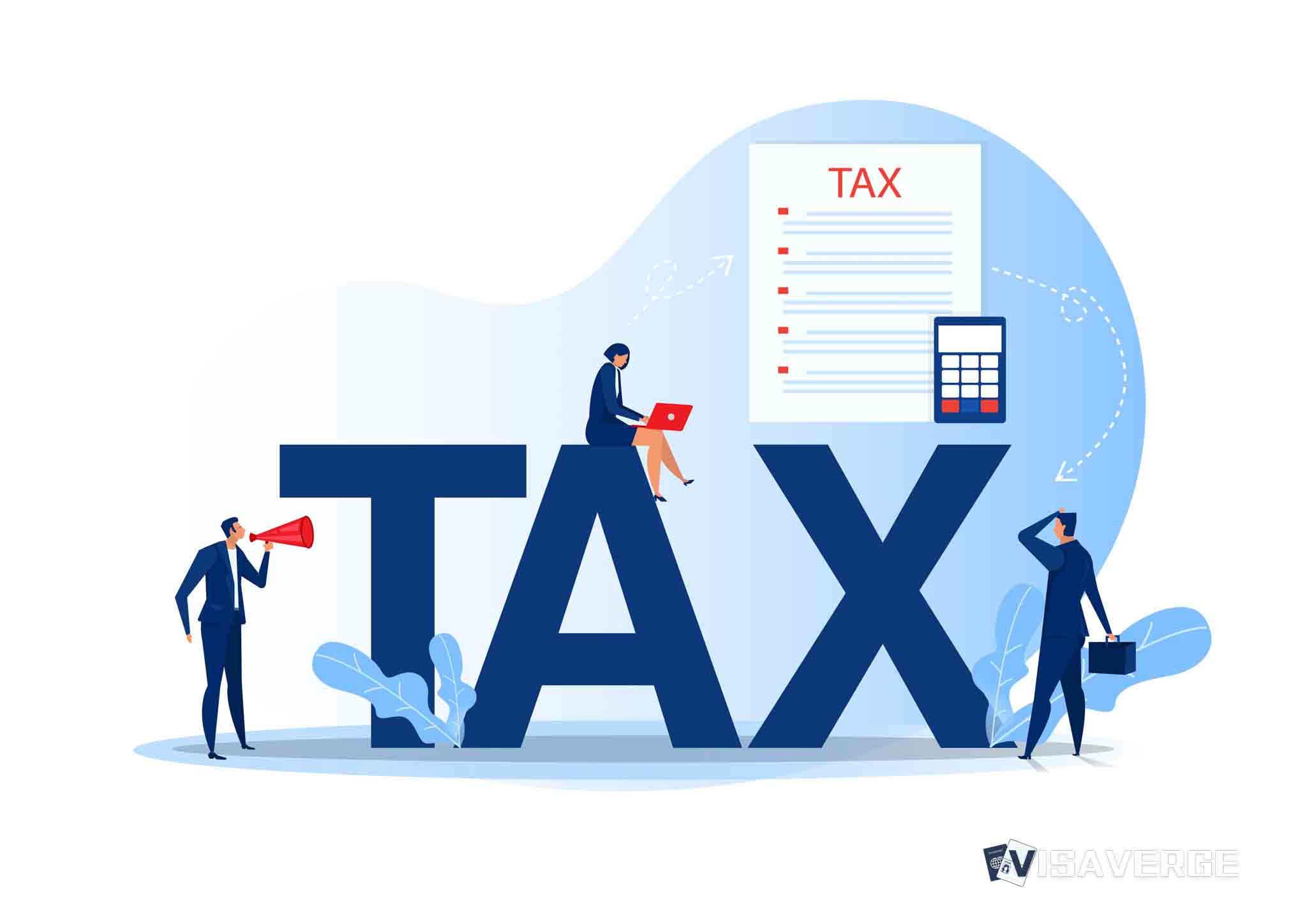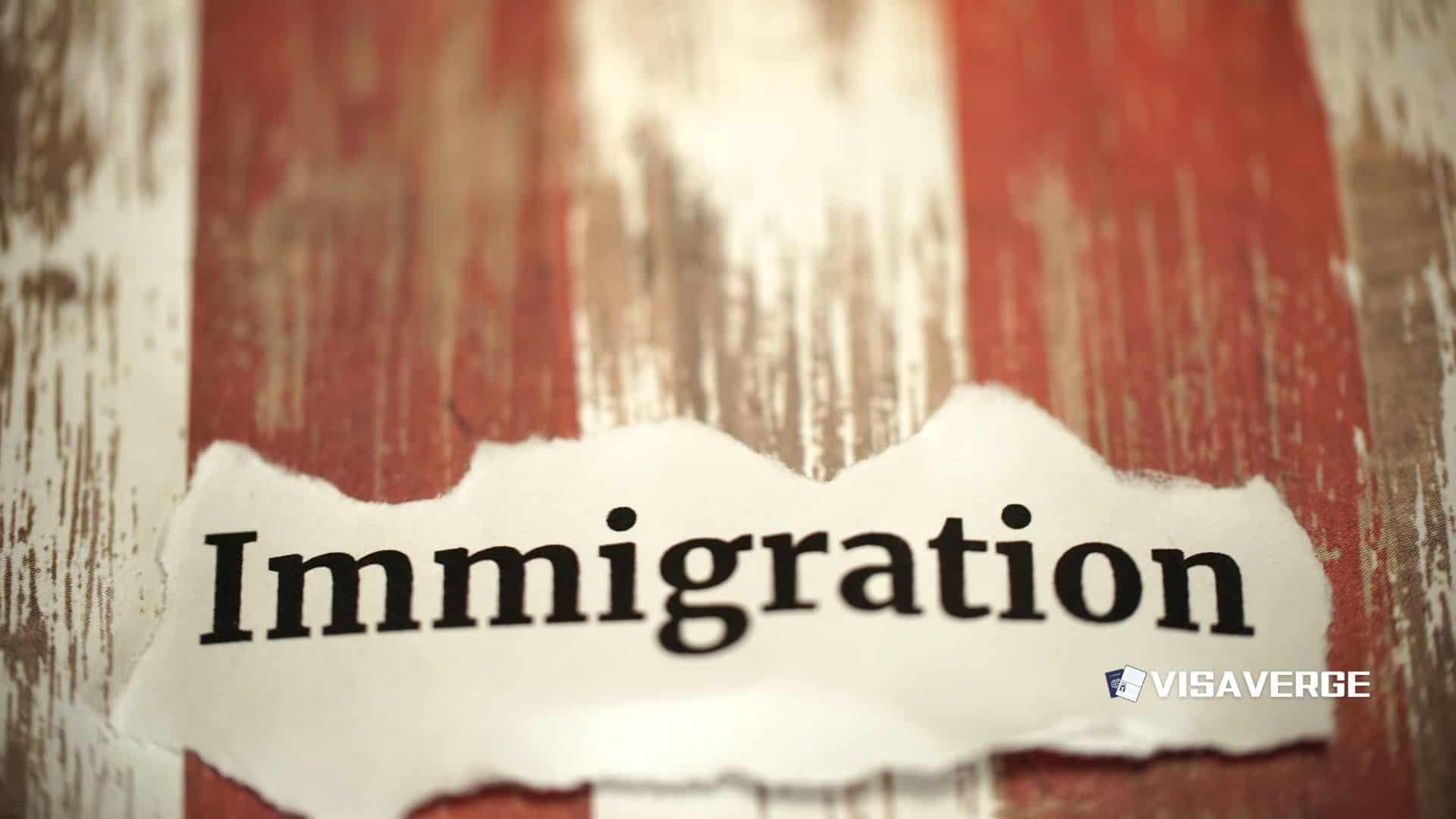Key Takeaways
• Since March 2025, green card and visa holders face increased secondary inspections at US airports like Boston Logan.
• New policies under President Trump’s Enhanced Vetting order allow CBP to search devices and detain travelers.
• A travel ban targeting over 40 countries is imminent, raising further scrutiny risks for international travelers.
Green Card and Visa Holders Face Unprecedented Scrutiny at U.S. Airports
Over the past several weeks, green card holders and visa holders arriving at U.S. airports—including Boston Logan—have reported a sharp increase in secondary inspections, detentions, and even deportations. This wave of heightened scrutiny follows new policies under President Trump’s administration, leaving many travelers anxious and uncertain about their ability to re-enter the United States 🇺🇸. Immigration lawyers, civil rights groups, and foreign governments have all raised concerns, while U.S. Customs and Border Protection (CBP) officers exercise broad discretion at the border.

What’s Happening at U.S. Airports?
Since March 2025, there has been a marked rise in reports of green card (lawful permanent resident, LPR) and visa holders facing extra questioning and delays at U.S. ports of entry. Major airports like Boston Logan have become focal points for these incidents. Travelers are being pulled aside for secondary inspections, where CBP officers may search luggage, review electronic devices, and ask detailed questions about travel history, employment, and even social media activity.
Recent high-profile cases include:
– Fabian Schmidt, a green card holder, was detained at Boston Logan after returning from Luxembourg.
– Dr. Rasha Alawieh, an H-1B visa holder, was deported after attending a funeral in Lebanon.
These cases have drawn attention from immigration lawyers and civil rights advocates, who say the new policies are affecting not just people with criminal backgrounds, but also long-term residents and professionals with no history of wrongdoing.
Why Is This Happening Now?
The increased scrutiny is a direct result of President Trump’s January 20, 2025, “Enhanced Vetting” Executive Order. This order calls for stricter enforcement at U.S. borders, affecting both green card and visa holders. The administration has also announced plans for a new travel ban that could target citizens of over 40 countries, using a three-tiered system (Red, Orange, Yellow) to determine the level of restrictions or extra checks.
At the same time, the administration has ended Temporary Protected Status (TPS) for Venezuelan and Haitian nationals, making it harder for these groups to travel and return to the United States 🇺🇸.
How Are Travelers Being Affected?
Green Card Holders
Green card holders are lawful permanent residents, but their status does not guarantee automatic entry. Under the new policies, they face:
- Secondary inspection: Extra questioning about travel history, time spent outside the U.S., employment, and family ties.
- Device searches: CBP can search phones, laptops, and other devices without a warrant. Officers may review social media posts, messages, and even political content.
- Detention and removal: If CBP questions a green card holder’s admissibility—due to long absences, criminal history, or weak ties to the U.S.—they can be detained and placed in removal (deportation) proceedings.
- No lawyer present: Green card holders do not have the right to an attorney during CBP interviews at the border, but they do have the right to a hearing before an immigration judge if their status is challenged.
Visa Holders
Visa holders—including those with H-1B work visas, student visas, and visitor visas—are also facing increased risk:
- Entry denial: CBP officers can deny entry for many reasons, including political or religious affiliations, travel history, or perceived lack of ties to the U.S.
- Social media checks: Officers may review social media activity for controversial posts or connections.
- Employment-based scrutiny: H-1B and other work visa holders are being questioned about their jobs, employers, and reasons for travel.
All International Travelers
Everyone arriving at U.S. airports should expect:
- Longer processing times
- More frequent detentions
- Greater uncertainty about reentry
According to analysis by VisaVerge.com, immigration law firms and advocacy groups have reported a “significant increase” in secondary inspections and detentions for green card and visa holders since March 2025. Social media posts from immigration attorneys and travelers confirm that these trends are real and widespread.
What Are the Main Risks?
A summary of key risks and recommendations for green card and visa holders:
| Risk Factor | Practical Effect | Recommendation |
|---|---|---|
| Long absence from U.S. | Secondary inspection, possible status loss | Avoid absences >6 months; get re-entry permit |
| Criminal history (even minor/old) | Detention, removal proceedings | Consult attorney before travel |
| Weak U.S. ties (job, family, taxes) | Questioning, possible denial of entry | Maintain strong U.S. ties, carry documentation |
| Political/social media activity | Device search, increased scrutiny | Review online presence before travel |
| Travel from targeted countries | Entry ban, heightened vetting | Monitor advisories, consult attorney |
What Are the Rules and Rights at the Border?
CBP officers have broad authority under the Immigration and Nationality Act (INA), especially Section 212(f), to deny entry to noncitizens if they believe the person is a risk to U.S. interests. This means that even green card and visa holders can be refused entry or detained for further questioning.
Key points to remember:
– CBP can search your bags and electronic devices without a warrant.
– You are not required to answer questions unrelated to your immigration status.
– Lawyers are not allowed during CBP interviews at the border.
– If your status is challenged, you have the right to a hearing before an immigration judge.
For more information on your rights and CBP procedures, visit the U.S. Customs and Border Protection official traveler information page.
What Should Green Card and Visa Holders Do Before Traveling?
Immigration lawyers and civil rights groups recommend that green card and visa holders take extra steps before traveling internationally. Here’s a checklist to help you prepare:
Before You Travel
- Carry a valid, unexpired green card (Form I-551) or visa. If you need a replacement, use the official Form I-90 for green card renewal.
- Bring a valid passport from your home country.
- If you plan to stay abroad for more than one year, get a re-entry permit by filing Form I-131.
- Maintain strong ties to the U.S.: Keep proof of employment, property ownership or rental, family relationships, and recent U.S. tax returns.
- Carry supporting documents: Bring employment verification letters, tax filings, mortgage or rental agreements, utility bills, and your travel itinerary.
- If you have any criminal history or past immigration issues, consult an immigration attorney before traveling.
- Be ready for device searches: Review your social media and electronic devices for any content that could be misunderstood or raise questions.
- Cooperate with CBP officers, but remember you are not required to answer questions that do not relate to your immigration status.
During Your Trip
- Keep all documents handy: Have your green card, visa, passport, and supporting documents easily accessible.
- Stay in touch with your employer or family in the U.S. to show ongoing ties.
- Monitor travel advisories from your home country and the U.S. Department of Homeland Security.
Upon Return to the U.S.
- Be patient: Expect longer wait times and possible secondary inspection.
- Answer questions truthfully and calmly.
- If detained or questioned, ask for a written notice if CBP challenges your status.
What Are Foreign Governments Saying?
Countries such as Germany 🇩🇪 and the United Kingdom 🇬🇧 have updated their travel advisories, warning citizens that holding a visa or waiver does not guarantee entry to the United States 🇺🇸. They remind travelers that CBP officers have broad discretion and that even lawful permanent residents can be denied entry or detained.
What Do Legal Experts and Civil Rights Groups Advise?
Legal experts recommend that green card and visa holders avoid non-essential international travel at this time. The unpredictability and broad discretion of CBP officers mean that even long-term residents with no criminal history can face problems at the border.
Immigration law firms report that the new vetting policies are being used to challenge whether green card holders truly intend to live in the United States 🇺🇸. Officers may question or even try to revoke green card status more aggressively than before.
Civil rights groups warn that the line between legal and undocumented immigrants is becoming less clear, with more aggressive enforcement actions affecting all noncitizens.
How Are Employers and Families Affected?
Employers are worried about the impact on employees who hold H-1B or other work visas, especially those who need to travel for business. Delays, detentions, or entry denials can disrupt business operations and cause stress for both workers and companies.
Families are also feeling the strain. Many green card holders and visa holders are reconsidering travel plans, fearing they may not be allowed back into the United States 🇺🇸 or could face long detentions.
What Is the Historical Context?
Scrutiny of green card and visa holders at U.S. borders has increased at different times in the past, often in response to changes in administration or security concerns. The current wave of enhanced vetting and secondary inspections is part of a broader push by the Trump administration to tighten immigration enforcement and restrict entry from certain countries.
CBP’s authority comes from the Immigration and Nationality Act, which gives officers wide power to deny entry to anyone they believe could be a risk to the country.
What’s Next? Future Outlook and Pending Changes
A new travel ban is expected soon, targeting citizens of more than 40 countries. This ban could further restrict entry and increase scrutiny for travelers from those nations. The administration is likely to keep the current policies in place and may even make them stricter, focusing on security and enforcement.
Civil rights groups and immigration lawyers are preparing to challenge the new travel ban and enhanced vetting policies in court. However, until legal challenges are resolved, travelers should expect the current environment to continue.
Practical Guidance: What Should You Do Now?
- If you are a green card or visa holder, consider postponing non-essential international travel.
- If you must travel, prepare thoroughly: Gather all documents, review your social media, and consult an immigration attorney if you have any concerns.
- Stay informed: Follow updates from official sources like U.S. Customs and Border Protection and the U.S. Department of Homeland Security.
- Employers should support affected employees by providing documentation and legal resources as needed.
- Families should discuss travel plans carefully and be aware of the risks.
Where to Get Help and More Information
If you need legal advice or have questions about your status, contact an immigration attorney. Some resources include:
- Landerholm Immigration, A.P.C.: (510) 756-4468
- Taft Immigration Team: Contact via their website for travel preparedness guidance
- FordMurray Immigration Law: Visit their blog for updates and advisories
- U.S. Customs and Border Protection (CBP): Official traveler information
- U.S. Department of Homeland Security (DHS): Policy updates
Final Takeaway
Green card and visa holders are facing more scrutiny than ever at U.S. airports, with increased risk of secondary inspections, detentions, and even removal proceedings. All travelers should prepare carefully, consult legal counsel if at risk, and consider postponing non-essential international travel until the policy environment becomes more stable. As reported by VisaVerge.com, the current situation is unprecedented and requires extra caution from anyone planning to enter the United States 🇺🇸.
By staying informed, prepared, and cautious, green card and visa holders can reduce their risk and protect their ability to live and work in the United States 🇺🇸.
Learn Today
Green Card → A document granting lawful permanent resident status to live and work in the United States indefinitely.
Secondary Inspection → Additional questioning and examination by CBP officers after initial border screening at US ports of entry.
H-1B Visa → A nonimmigrant visa allowing US employers to temporarily employ foreign workers in specialty occupations.
Enhanced Vetting → A 2025 Executive Order increasing security checks and stricter enforcement at US borders for travelers.
Re-entry Permit → A travel document allowing green card holders to remain outside the US longer without losing status.
This Article in a Nutshell
Green card and visa holders at US airports now face unprecedented scrutiny, with more inspections, device searches, and detentions. These changes, spurred by new policies in 2025, create uncertainty and increased risks for travelers. Legal experts advise preparing documents and reconsidering non-essential travel amidst growing enforcement.
— By VisaVerge.com













